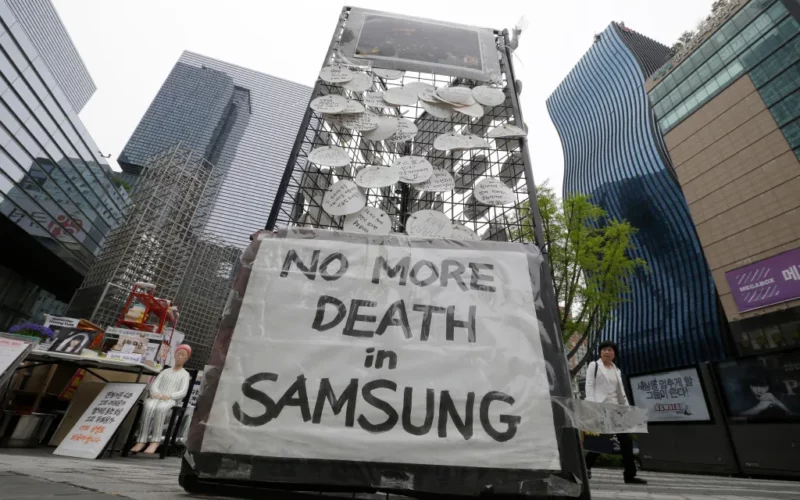For the first time in its history, workers at Samsung Electronics in South Korea staged a strike on Friday, according to the head of a major union representing tens of thousands of employees.
Samsung Electronics, one of the world’s largest smartphone manufacturers and a key producer of high-end memory chips used for generative AI, has been in wage and benefits negotiations with the union since January. Despite months of discussions, the two parties have yet to reach an agreement.
Lee Hyun-kuk, vice president of the National Samsung Electronics Union, described Friday’s action as “largely symbolic” but emphasized it as a significant starting point. “We have plans for follow-up strikes if the management is not willing to communicate with us openly,” Lee told AFP. The union is considering an all-out general strike if necessary.
Union head Son Woo-mok reported that the strike involved the use of paid leave, with a noticeable impact on workplace attendance. “It’s difficult to provide an exact number, but from what I’ve seen of the workplace attendance in the morning, there is a significant difference from the usual,” he said.
Samsung Electronics stated that it has been actively engaging in negotiations and will continue to do so, asserting that there has been “no impact on production and business activities.” The company noted that the rate of paid leave usage on Friday was lower than on June 5 last year, a similar day sandwiched between a public holiday and a weekend.
Around 10 workers protested outside Samsung’s main office in Seoul, chanting, “Respect labour!” Samsung, the flagship subsidiary of the South Korean giant Samsung Group, has offered a 5.1 percent pay increase this year. The union indicated it would consider accepting this offer if Samsung also provided an additional day of annual leave and more transparent performance-based bonuses.
According to Taiwan-based market research firm TrendForce, the strike is not expected to impact the production or shipment of DRAM and NAND Flash memory chips. The strike involves headquarters employees, not production line workers, and Samsung’s fabs rely heavily on automated production, requiring minimal human labor.
Despite the limited immediate impact, the strike is historically significant, highlighting a shift towards labor empowerment in South Korea. Samsung Electronics, which avoided unionization for almost 50 years, formed its first labor union in the late 2010s. In 2020, then-Vice Chairman Lee Jae-yong apologized for past labor issues and pledged to ensure the company would not be criticized for its union-free management.
The National Samsung Electronics Union, with around 28,000 members (over a fifth of Samsung’s workforce), noted that the concept of striking has long been taboo within the company. Union deputy Lee emphasized that the goal is not to disrupt production but to have their voices heard.
Semiconductors are crucial to the global economy, used in a wide array of products from appliances to weapons. They are also South Korea’s leading export, accounting for $11.7 billion in March, which is a fifth of the country’s total exports.
Shares of Samsung Electronics closed down 0.13 percent on Friday.








